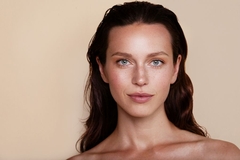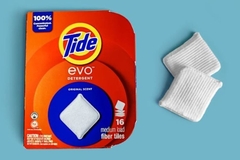Report reveals Gen Z’s beauty routines shift with trends and trust

Kyra’s State of Beauty 2024/25 report found that Gen Z is more inclined to experiment with new brands and products than maintain loyalty — particularly influenced by social media.
The influencer agency listed the top beauty brands among the young consumers. E.L.F. Beauty maintained its position as the top brand for the second year in a row. Several new entries into the top ten pushed out previously dominant luxury brands, with Christian Dior Couture, last year’s runner-up, falling to tenth place.
Four of the top ten Gen Z makeup brands are new entrants this year. In addition to Rare Beauty and NARS, L’Oréal Paris and MAC Cosmetics also entered the leaderboard. Charlotte Tilbury and Fenty Beauty climbed the rankings slightly, while Dior and other prestige brands dropped or disappeared. These shifts illustrate Gen Z’s openness to trying new brands, often influenced by what is trending in real time.
The rankings show Gen Z’s prioritization of performance and inspiration when selecting beauty products. Performance was the leading reason for product purchases at 38%, followed by the desire to recreate a trend (37%), then price (33%), and value (18%).
Meanwhile, 14% reported being influenced by social media creators, more than the 13% by friends.
These findings indicate a dynamic market in which accessible favorites displace prestige players. Moreover, Gen Z’s versatile and changing approach to beauty is driven by trend relevance and personal expression, which often outweighs brand loyalty.
“Brand loyalty cannot be relied on solely anymore — the brands that are winning are the ones getting creative and staying top of mind on socials,” the report outlines.
Hybrid discovery and purchase
According to the report, social platforms remain central to Gen Z’s beauty discovery. TikTok led with 39%, followed by Instagram (35%) and YouTube (9%). Notably, YouTube saw significant growth, while Pinterest’s role declined.
Influencer agency, Kyra, names the top beauty brands for Gen Z.Kyra attributes YouTube’s rise to increasing demand for long-form content that allows for deeper product understanding and storytelling.
The data shows that this discovery behavior is mirrored in Gen Z’s hybrid shopping patterns. While 45% of purchases are still made online, in-store buying rose to 41% (up 15% year-over-year), and social commerce doubled to 12%.
“Get comfortable with a consumer funnel and route to purchase that jumps from digital to in-real-life and back again,” advises the report.
Jenn Sulivan, contributor to the Kyra report, says: “Social selling continues to grow because people trust their favorite creators’ recommendations.” As Gen Z toggles between inspiration and trial, the report says consistency across online and in-store experiences is increasingly important.
Credibility and authenticity reign
Kyra’s data shows that of all social media content creators, “expert creators” most influence Gen Z beauty purchases. Dermatologists, makeup artists, or aestheticians are the most trusted voices to 36% of respondents. This was followed by creators who feel like friends (30%), celebrities (21%), and aspirational influencers (13%).
According to the data, this preference for credible and relatable voices is changing how brands approach influencer partnerships. The report notes that “authority and trust” is the best balanced combination.
Consumers also prefer unscripted content with authentic experiences, leading to stronger engagement: product reviews (35%), tutorials (15%), and “get ready with me” (GRWM) content (15%).
GRWM content refers to videos of content creators doing their makeup or skin care routines on camera, usually paired with explanations of what selected products do and their reasons for choosing those products.
The findings suggest that older models of aspirational advertising are becoming less effective. For brands, this signals a need to collaborate with influencers who balance knowledge with authenticity and who can communicate performance results without appearing overly promotional. Gen Z has a fluid approach to beauty purchases.
Gen Z has a fluid approach to beauty purchases.
Makeup their mind
Multiple findings in the report point to Gen Z’s fluid, non-linear approach to beauty consumption. Rather than committing to specific brands, price points, or even product types, Gen Z builds their routines dynamically, adapting as they go.
Personal Care Insights previously spoke with Sampo Parkinnen, CEO and founder of Revieve, who observed similar patterns: “Gen Z is not sticking to one price point — they are dually investing in high-end products and budget-friendly finds.”
In North America, 59% of Gen Z consumers prefer premium skin care, while in the Asia-Pacific region, 80% prioritize affordability.
This mix-and-match approach blurs the lines between luxury and mass-market categories and disrupts traditional segmentation.
However, the behavior is not limited to brand switching: Kyra’s data also highlights the rise of coverage flexibility — 14% of Gen Z use only concealer, 10% adjust their foundation coverage depending on the day, and many opt for lightweight alternatives like skin tints or skip base products altogether.
Preferences fluctuate depending on how they want to express themselves, underscoring a generation that resists fixed routines.
Another strong motivator is the desire to recreate trending makeup looks. At 37%, this was the second largest driver for purchase, surpassing brand loyalty or pricing considerations.
 The number of Gen Zers that were confident in their makeup knowledge dropped significantly.According to the report, “trend is the word for makeup brands looking to grow — whether that is trending formats, creators, or products.”
The number of Gen Zers that were confident in their makeup knowledge dropped significantly.According to the report, “trend is the word for makeup brands looking to grow — whether that is trending formats, creators, or products.”
Balancing trend with performance
While Gen Z shoppers chase inspiration and novelty, performance remains the top metric when evaluating a product. Aesthetic appeal and social media buzz may drive initial attention, but product efficacy is ultimately what retains interest and earns repeat purchases.
Kyra’s editorial strategist and report contributor Celia Ellenberg summarizes the shift: “This generation not only cares about ingredients and performance, they know about ingredients and performance.”
Kyra’s data indicates that 11% of Gen Z respondents feel confident in their makeup knowledge — a drastic drop from 54% last year. However, 54% also said they are eager to improve their skills. This gap highlights an opportunity for brands to provide educational content that bridges the knowledge deficit while tying in product offerings.
Kyra’s report emphasizes that content should avoid repeating well-known information and instead offer value that helps consumers feel more confident and informed in their purchases.













